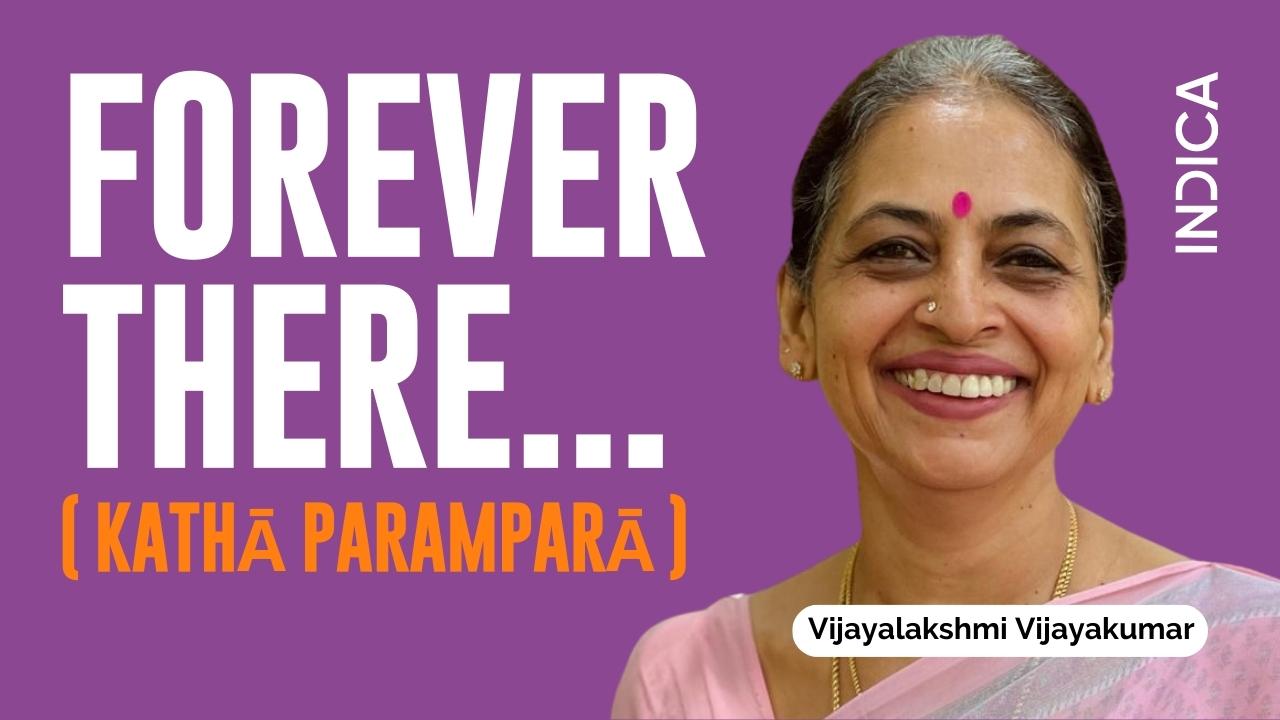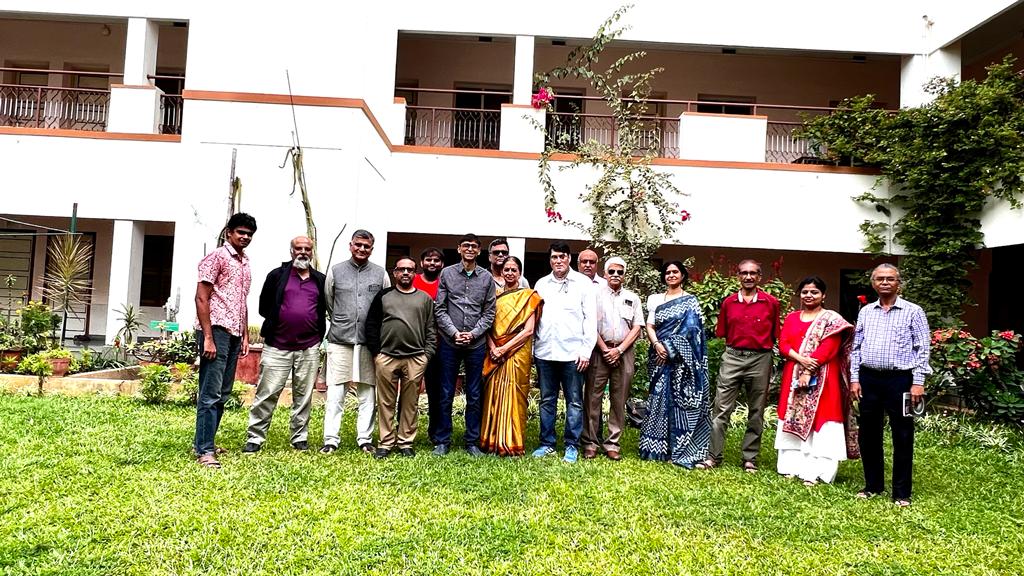Surela Chakraborty’s journey as a writer, particularly with her short story "Homecoming," seems to be deeply intertwined with her exploration of historical events, particularly those detailed in Dr. Meenakshi Jain’s work "Flight of Deities." Delving into the harsh realities of foreign invasions in India and the Hindu community's efforts to safeguard their spiritual and cultural heritage, Surela's narrative reflects a commitment to authenticity and a desire to shed light on lesser-known historical truths.
In this interview, Surela highlights the transformative nature of writing "Homecoming", which was featured in The Flight of Deities: An Anthology of Desecration and Devotion, curated by Avatans Kumar. While she had previously written short stories, this particular piece marked her first foray into historical fiction grounded in rigorous research. The challenge lay in seamlessly integrating historical facts into a compelling storyline without sacrificing authenticity. For Surela, the process was enlightening, offering her a fresh perspective on historical events previously unknown to her, particularly the desecration of temples.
Through her research, Surela gained insight into the struggles faced by communities during foreign invasions, and she found a newfound appreciation for historical events viewed through this different lens.
What was the role INDICA played in shaping your journey as an author?
Hari Kiran garu, the founder iNDICA, has been a guiding mentor figure in my writing journey, providing both opportunities and invaluable guidance that paved the way for me to become a published author. It is through his support that my short story found its place in this anthology. Amidst the challenges of the pandemic, I was fortunate to receive a scholarship from INDICA, enabling me to enrol in an online creative writing course conducted by Chetan Mahajan, co-founder of the Himalayan Writing Retreat. This course proved to be a transformative experience, illuminating aspects of story structure and fiction writing that were previously unfamiliar to me. Under Chetan Mahajan's guidance, I gained insights into the intricacies of the publishing industry and refined my writing style.
Additionally, the invaluable guidance provided by Andrew Otis Haschemeyer in restructuring my short story into a compelling narrative tool was instrumental in shaping my creative journey. Participating in the Open house with Otis further honed my creative writing skills, although I acknowledge that I am still a work in progress.
The publication of the anthology was accompanied by a video interview hosted by Sutradhar Talks in collaboration with INDICA —an exhilarating experience for me as a first-time author. As someone accustomed to conducting interviews for my feature stories, being on the receiving end made me feel truly special.
The online book launch of 'The Flight of Deities: An Anthology of Desecration & Devotion' served as a significant morale boost, thanks to the unwavering support of the entire team at Indic Book Club, our curator Avatans Kumar, and INDICA. Their steadfast support has been indispensable in shaping my writing journey, and as a first-time author, I am deeply grateful for their handholding guidance.
What was your research process? How can other writers benefit from your unique way of gathering facts about our past?
Reading 'Flight of Deities and Rebirth of Temples: Episodes from Indian History' by Meenakshi Jain served as a revelation, shedding light on a facet of history that had remained obscured from my awareness. Traditional history textbooks had glossed over the topic of temple destruction, leaving me under the mistaken impression that these revered structures had simply succumbed to natural erosion over time. Meenakshi Jain's meticulous research presented in her book, unveiled the truth behind the deliberate destruction of numerous temples across India. Her adeptness at presenting detailed facts in a manner that captivates without overwhelming the reader left a lasting impression on me.
Similarly, 'Swift Horses Sharp Swords: Medieval battles which Shook India' by Amit Agarwal ignited a fervent passion within me to delve deeper into the subject of temple destruction. Agarwal's narrative skilfully elucidated the harrowing realities that unfolded in the aftermath of Islamic invasions in India, shedding light on the valorous sacrifices of Indian rulers—a narrative that was conspicuously absent from our school textbooks. It was through these insightful works that my quest for historical truth was ignited, propelling me towards a deeper understanding of India's past.
How did you select the plot for Homecoming?
As a passionate traveller and avid history enthusiast, my journey to Khajuraho ignited a profound curiosity to uncover its rich historical tapestry. Witnessing the grandeur of the temples firsthand stirred a deep sense of awe within me, but it was the realization that these architectural marvels were but remnants of what once stood, ravaged by invasions, that stirred a profound anger. Motivated by this fury, I embarked on an in-depth study of the Khajuraho temples, delving into their history with fervour.
Amidst my research, the lesser-known Lakshmana Temple emerged as a captivating focal point, drawing me into its intricate story. Through the process of crafting my short story, I found myself delving deeper into India's true history in ways I had never before imagined. It was a journey of discovery that not only enriched my understanding of the past but also fuelled my passion for storytelling.
How you approached your plot, the effort to put it in the context of its time and the skill required to make history exciting
In crafting this short story, I intricately woven together my personal travel encounters with my extensive research on the temples. Recalling a moment of respite as a tourist, perched on the temple's platform edge, I felt compelled to integrate that experience into the narrative. Numerous journeys have significantly influenced the storyline; for instance, the character of the Naga sadhu was directly inspired by encountering a real-life mendicant at a temple in Ujjain. His visage remained vivid in my mind's eye as I penned this tale. Additionally, I immersed myself in the protagonist Rahil's perspective, tracing his transformation from a driven archaeologist to one unafraid to defy convention.
Moreover, the guidance from Otis during the workshop proved invaluable in refining the story's realism. Incorporating details on excavation techniques and the everyday life of an Indian archaeologist conducting fieldwork lent authenticity to the narrative. Through a blend of meticulous research and imaginative flair, I crafted a plot that melds factual elements with fiction, enriching the storytelling experience.
In addition please could you talk about the idea of people having intuition and being able to protect the deities by listening to these dreams/omens etc as it is in your story.
The concept of giving the protagonist a sixth sense was sparked by my immersion in the great Indian epics and my fascination with watching them on television. Drawing inspiration from the kings of ancient times, I envisioned Rahil, the main character, experiencing dreams or surreal moments that compel him to reassess the purpose of his life. Naming him Rahil was a nod to a descendant of the Chandela dynasty, who achieved numerous military victories. I wanted the modern-day Rahil, the focal point of my narrative, to embark on an extraordinary journey that might initially confound readers but ultimately reveal his triumph in upholding righteousness. This was my way of illustrating that if an unassuming archaeologist like Rahil could summon the courage to champion dharma, then surely anyone could. Iwas influenced by tales of temples being constructed based on divine directives received in dreams, and I aimed to incorporate that concept into my story.
While people have a general idea of the bigger wrongs, the smaller ones are lost to us. How do we bring these into our minds?
Conscious effort is essential to shine a light on the often-overlooked smaller wrongs. By addressing these minor injustices, we can muster the courage to confront uncomfortable truths, foster critical thinking, and nurture empathy. I firmly believe that the initial stride in this endeavour lies in unravelling the obscured truths behind historical events, particularly those relegated to the confines of our school textbooks. This endeavour invites young minds to scrutinize the veracity of conventional narratives. Questions arise: Was Vasco Da Gama merely a spice trader? Who exactly was St. Francis Xavier, revered in Goa? Was Emperor Aurangzeb truly the sole bigot in Mughal history?
Incorporating untold tales of Indian monarchs and heroes, amplifying marginalized Hindu voices, and integrating updated archaeological discoveries into school history curricula not only enriches education but also brings attention to these long-ignored minor wrongs. Rectifying such injustices demands spreading awareness through various mediums such as seminars, short films, podcasts, or talk shows, disseminated by the media.
This anthology serves as a prime example of rectifying a significant civilizational wrong that has long been left unchallenged. Additionally, it's crucial to acknowledge the invaluable research led by esteemed scholars in this pursuit. A collective effort is indispensable in fostering cultural awareness, which begins with open dialogue and the steadfast courage to uphold our faith and convictions. Education, when steered in the right direction, lays a solid foundation for our beliefs and values.
How can writers help in projecting history accurately?
I aim to contribute to the overarching objective of nurturing a richer, more inclusive comprehension of history, one that empowers students to acknowledge the agency of individuals and communities in forging their destinies through acts of defiance and collective mobilization. My writing endeavours, spanning both fiction and non-fiction grounded in thorough research, are dedicated to spotlighting the narratives of Indian heroes and heroines. Embarking on this journey, I've begun immersing myself in literature that unveils India's authentic history and cultural legacy, paving the way for a more enlightened perspective.





